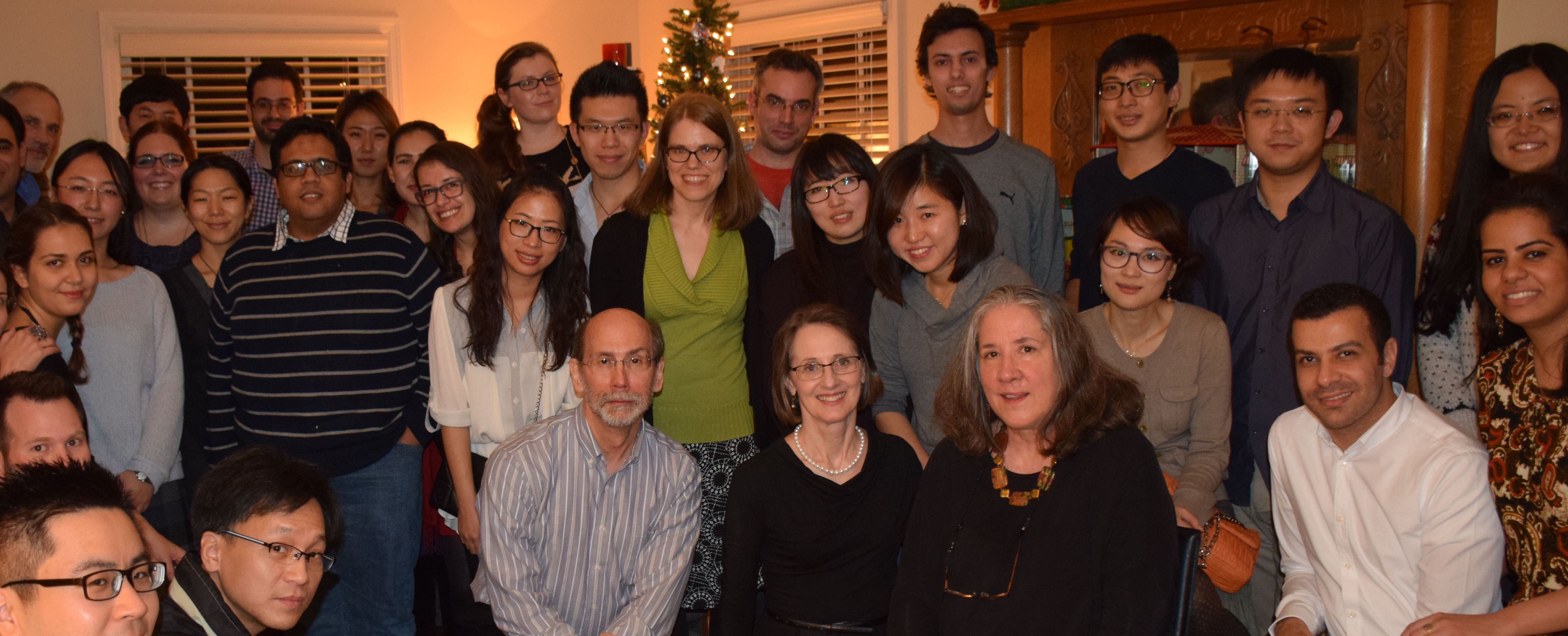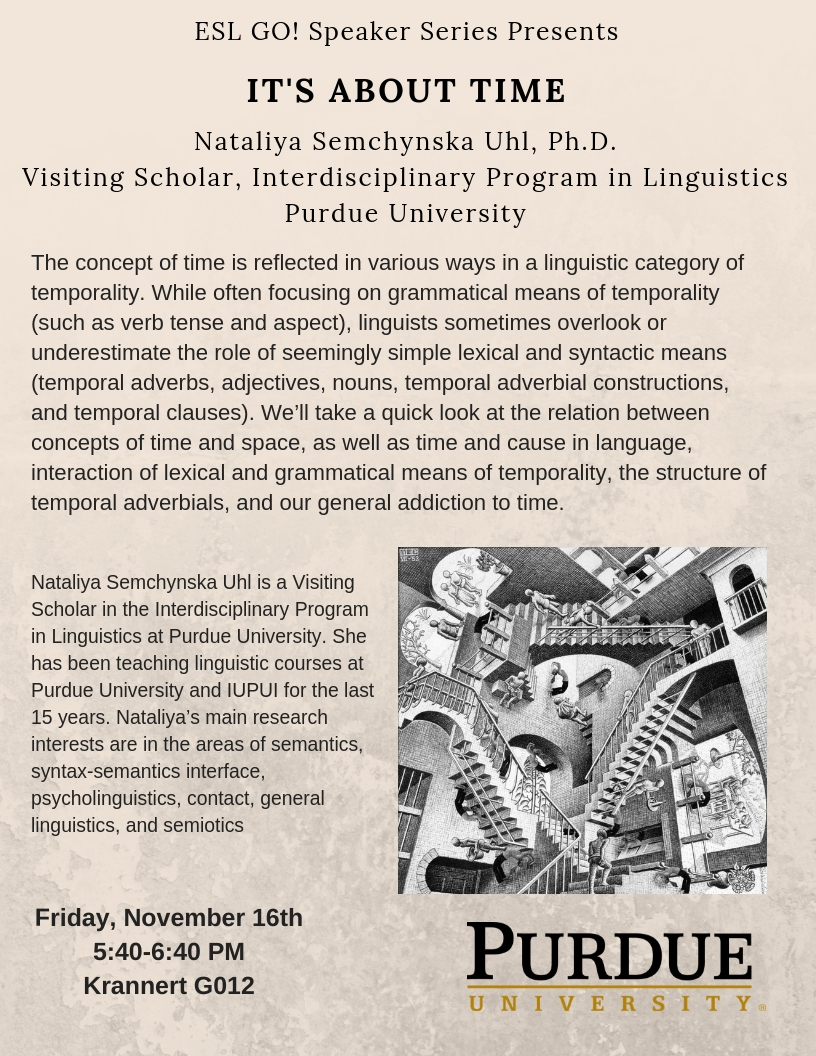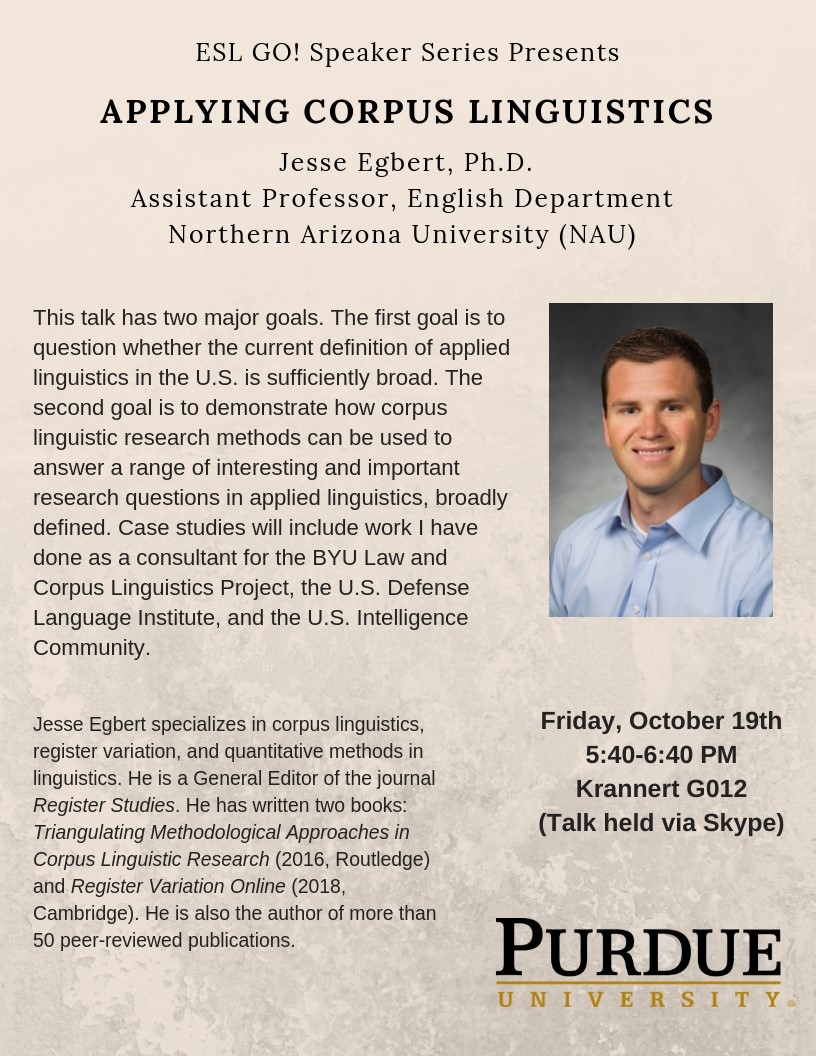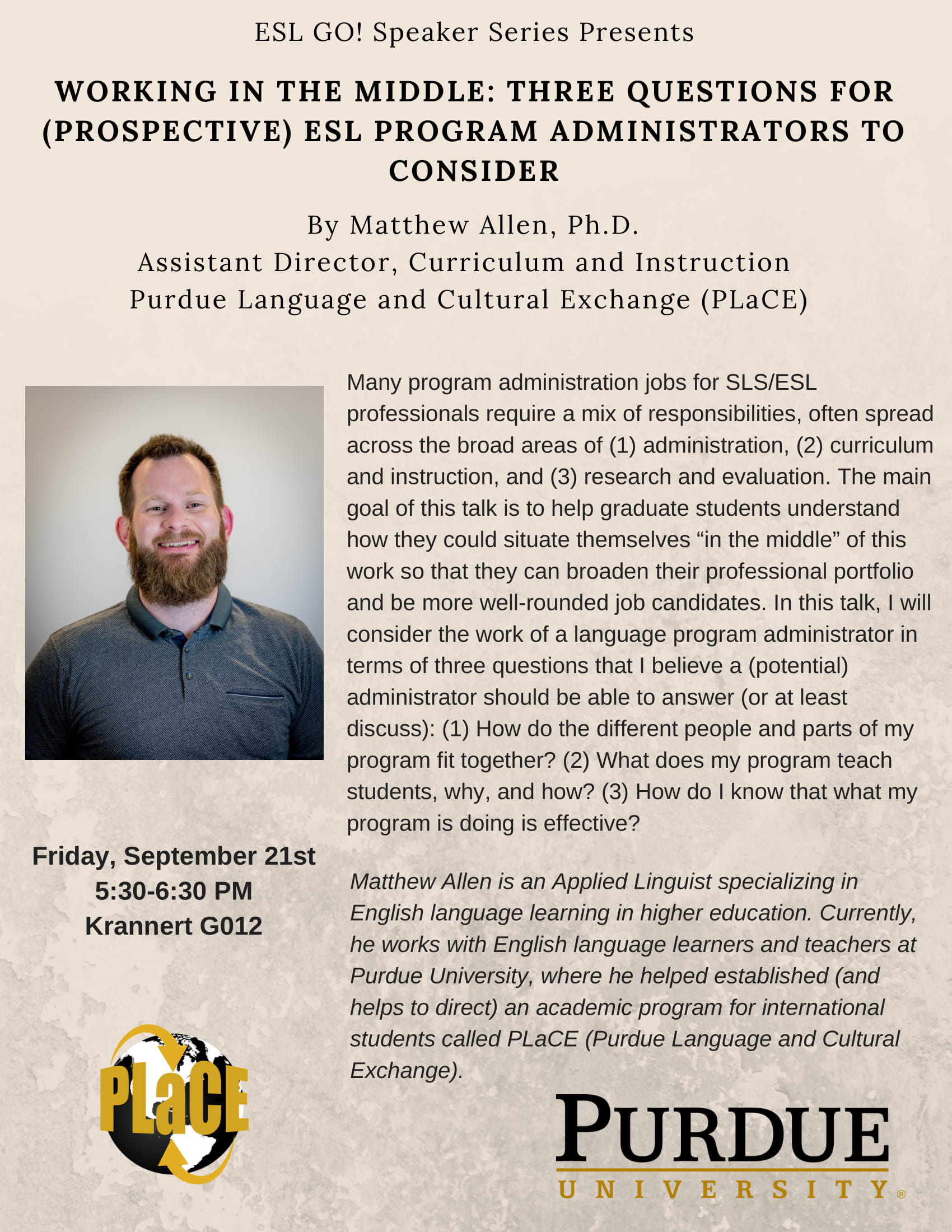
The SLS/ESL Speaker Series
Join us for the ESL/SLS Speaker Series! This event of lectures and discussions made its debut in the fall of 2008. It started as a class project, and since 2008, it has been developed into an informal, yet a high-quality speaker series. It occurs approximately monthly throughout the academic year. The ESL Speaker Series is intended for graduate students or anyone interested in the field of Second language studies/English as a second language studies. The invited speakers are a balanced mix of advanced graduate students from our program, professors from our ESL/SLS program at Purdue, as well as scholars from other universities. The speakers come from a nice range of disciplines including Second language writing, World Englishes, Language testing, Second language acquisition, Linguistics and Applied linguistics. The presentations are always followed by Happy hours where attendees have a chance to meet the speaker in person. Participation is free and open to the public.
Are you interested in gaining professional development experience and making important contacts? Sign up to volunteering at one of the workshops! You can help by escorting or introducing guests, participating in set-up and clean-up, or distributing brochures.
The Speaker Series Events 2018/19



The 2015-2016 Speaker Series Committee members are Sarah Fehrman and Mariam Alamyar.
Click on the name of the presentation to see more information.
April 22, 2016
Dr. Collen Neary-Sundquist
Title of the presentation not determined yet.
5:30 PM-6:30 PM at Krannert G002
Abstract to be posted soon.
March 25, 2016
Suneeta Thomas.
The case of the “innocuous” middle-class migrant employee: English language use and attitudes in Dubai, United Arab Emirates
5:30 PM-6:30 PM at Krannert G002
Recent literature on the presence of English in the United Arab Emirates has shown an increasing change in focus from the English Language Teaching (ELT) domain, to a more sociolinguistic and economic one (Boyle, 2012; Weber, 2011; Randall & Samimi, 2010; Karmani, 2005). While these studies have been significant to the field of World Englishes, this case-study charts new ground by observing the innocuous middle class migrant workforce hailing largely from Outer Circle countries, in an Expanding Circle context such as Dubai. It also provides a brief sociolinguistic backdrop of the emirate. The project employed mixed methods (observational accounts, field notes, a survey, and interviews) to garner data. It surveyed a convenient sample of 133 participants (of largely Indian, Filipino, and Pakistani origin) and interviewed a subset of 10 Indian participants to understand their use and attitudes towards English, as well as their impression of the Arabic language. Findings from this study reveal a sense of English occupying a ‘default’ space in these employees’ lives, rather than a nefarious, or an empowering role, while the Arabic language is seen as a plausible empowering asset. This study provides not only particular descriptions of English language use of these migrant workers, but also pushes for a new theory where the presence of English is no longer dominated by the vestiges of linguistic imperialism, but has become an important part of participants’ identity, existing in a parallel realm with their first languages, without necessarily encroaching it.
February 12, 2016
Dr. Cyndi Linch
Preparing a Professional Portfolio
5:30 PM-6:30 PM at Krannert G002
Cyndi Lynch is the director of fellowships and graduate student professional development for the Purdue University Graduate School. She is a registered veterinary technician, focusing on animal behavior. Ms. Lynch holds a BS degree in animal science and an MS degree in curriculum and instruction from Purdue University. Her research focuses on doctoral student engagement and the assessment of doctoral student learning outcomes in identified best practices, including mentoring, developing effective writing strategies, orientations and transition courses, and doctoral student professional development. Ms. Lynch administers Purdue’s Preparing Future Faculty and Preparing Future Professionals courses.
January 29, 2016
Dr. Daniel Olson
Listening in two languages: What eye movements tell us about language switching costs in auditory comprehension
5:30 PM-6:30 PM at Krannert G002
Previous research on bilingual language switching and lexical access has demonstrated a consistent reaction time cost associated with producing a switched token. This cost has generally been shown to be asymmetrical, with bilinguals evidencing a greater delay when producing switches into their dominant language relative to the non-dominant/ second language (e.g. Meuter & Allport, 1999), although such costs are variable depending on individual (e.g. Costa & Santesteban, 2004) and contextual (e.g., Gollan & Ferreira, 2009; Olson, 2015) factors. While these findings have been crucial for theories of bilingual language selection and control, both research and theory has failed to adequately account for the comprehension of language switches (Linck, Hoshino, & Kroll, 2008; Litcofsky, Tanner, & van Hell, 2015).The current study, employing an eye-tracking paradigm, extends this line of research by examining the potential for switch costs during auditory comprehension. Paralleling previous production-oriented research, overall results of the current study demonstrate asymmetrical switch costs, such that bilinguals incur greater switch costs when comprehending a switch into the dominant language than the non-dominant language. Furthermore, switch costs during comprehension are modulated by language mode. Results are discussed with respect to bilingual language selection mechanisms and theory in both production and comprehension.
Purdue University, 610 Purdue Mall, West Lafayette, IN 47907, (765) 494-4600
© 2015 Purdue University | An equal access/equal opportunity university | Copyright Complaints | Maintained by Office of XYZ
Trouble with this page? Disability-related accessibility issue? Please contact Office of XYZ at XYZ@purdue.edu.


